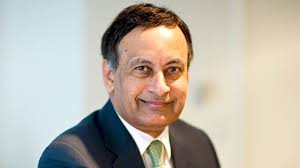Newspaper Article 03/07/2017
In the globalized world of today, where terrorism, extremism, drug trafficking, border security and environmental degradation have altered the security landscape of the world, multilateral approaches are being employed to address the transnational challenges. A number of regional as well as international organizations have emerged on the world stage, the political actors in pursuance of economic goals and to counter the security threats opt for multilateral approaches.
Shanghai Cooperation Organization (SCO) is one such organization, wherein, the regional states have endeavoured to foster cooperation against transnational challenges. China, Russia, Kazakhstan, Kyrgyzstan, Tajikistan and Uzbekistan are its member states. The organization has established diplomatic connections and partnerships with other multilateral institutions. SCO has an observer status in the UN General Assembly. The SCO’s geopolitical discourse on many issues — both international and regional does contrast its positions with those of the West; in particular, the West’s influence/interference in Eurasia. However, the global fight against terrorism, situation in Afghanistan, drug trafficking and the threat of Daesh offer scope of cooperation.
The new entries in SCO are Pakistan and India (SCO summit, Astana, June 8-9, 2017). Russian President Vladimir Putin stated: “the accession of India and Pakistan would increase the organization’s relevance, both in the region and worldwide.” The membership of South Asian players in SCO would expand the organization’s zone of influence South, towards the warm waters of Indian Ocean. Pakistan and India, as SCO members will have to work towards betterment of their bilateral ties (SCO Charter: “the member states should not have an active military conflict, and work towards stabilizing the border regions, while building military trust for maintaining peace and stability”).
The South Asian players will have to put aside their differences and work towards a secure region. However, the level of mistrust, disturbance along the Line of Control (LoC) and unrest in Indian Occupied Kashmir offers little hope for a Islamabad-New Delhi dialogue. India also has a territorial dispute with China. Both the countries have contesting claims over the territories of Arunachal Pradesh (held with India) and Aksai Chin (under Chinese control). The Line of Actual Control (LAC) between the two neighbouring countries has seen intermittent violence.
Pankaj Saran, India’s Ambassador to Russia said: “We have conveyed our views to the Russian side that military cooperation with Pakistan, which is a state that sponsors and practises terrorism as a matter of state policy, is a wrong approach. It will only create further problems.” The Indian psyche still revolves around the old Cold War politics and the legacy of partition, not realizing that Pakistan’s geostrategic location is such that the country cannot be isolated. Pakistan’s geo-strategic location gives it an added advantage. The upcoming China-Pakistan Economic Corridor (CPEC) will connect China, Pakistan, Central Asia, Caucasus and Russia.
CPEC is an integral part of China’s Belt and Road initiative, the corridor has been endorsed by the SCO and is expected to cement Pakistan’s role as a vital regional hub in the economic development of Central Asia, which has a strong presence in the SCO – Kazakhstan, Tajikistan and Uzbekistan are all members. Pakistan can also improve ties with Russia and China, and evolve measures to restore the regional balance of power (the US-India strategic partnership).
SCO’s thrust towards regional security, primarily stems from the threats of “terrorism, separatism, extremism”. SCO’s quest for regional peace is not confined to security only rather, the member countries have engineered economic cooperation also. SCO has an observer status in the UN General Assembly.
Terrorism, Afghan stability and regional connectivity are the areas where Pakistan can cooperate with the SCO states. Pakistan’s experience in countering terrorism and the SCO’s anti-terrorism structure (Regional Anti-Terror Structure-RATS) can complement each other. The terrorist attacks in Pakistan have a regional link. The terrorist attack in Lahore (February 13) was carried out by a suicide bomber from Kunar, Afghanistan. Jamaat-ul-Ahrar, splinter group of TTP (Tehreek-i-Taliban). Pakistan could discuss the issue of cross border terrorism on the SCO platform, which can be helpful in dealing with foreign miscreants fomenting the situation in Balochistan and FATA. Meanwhile, India’s use of force against unarmed civilians in Indian Occupied Kashmir is a violation of international humanitarian law. Indian Army has been firing pellets and hundreds of young men and women have been blinded. As per Article 1 Goals and Tasks of the SCO Charter: “to promote human rights and fundamental freedoms in accordance with the international obligations of the member states and their national legislation,” the member states shall have to adhere to the Charter. Pakistan can raise the issue of human rights in IOK on the organizational platform.
[A version of article appeared in Pakistan Observer, June 25, 2017]
Disclaimer: Views expressed are of the writer and are not necessary reflective of IPRI policy.
Amna Ejaz Rafi
Researcher Islamabad Policy Research Institute (IPRI)


